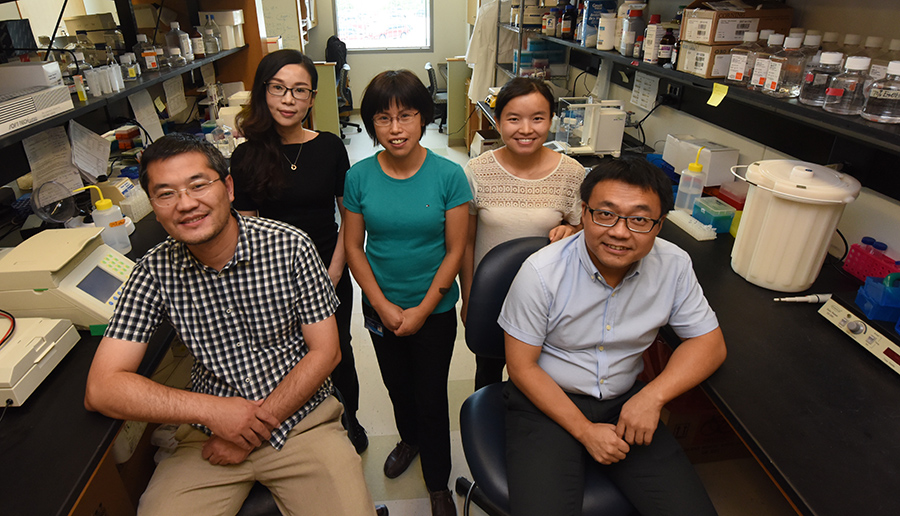According to the National Institute of Diabetes and Digestive and Kidney Diseases: "Diabetes affects an estimated 30.3 million people in the United States and is the seventh leading cause of death. Diabetes can affect many parts of the body and is associated with serious complications, such as heart disease and stroke, blindness, kidney failure, and lower limb amputation. In addition to increasing the risk for these complications, diabetes also doubles the risk for many forms of cancer, some forms of dementia, hearing loss, erectile dysfunction, urinary incontinence, and many other common diseases."


Weiqin Chen, PhD - Associate Professor - Physiology
706-721-8706 / wechen@augusta.edu / CV
Obesity and its associated health comorbidities are a worldwide epidemic with serious economic and health burden on society. The long-term research interest in the lab is to understand the regulation of white, beige and brown adipose tissue development and energy homeostasis, and use it to develop potential therapeutic approaches for obesity and related metabolic diseases.

Mong-Heng Wang, PhD - Associate Professor - Physiology
706-721-3830 / mwang@augusta.edu / CV
I have worked in the field of cytochrome P450 (CYP)-derived eicosanoids in cardiovascular diseases, renal diseases, and diabetes for more than 20 years. Throughout these years we have identified new compounds and pathways and elucidated their biological activities and their therapeutically potential for treatment of cardiovascular and diabetes-associated disorders.
